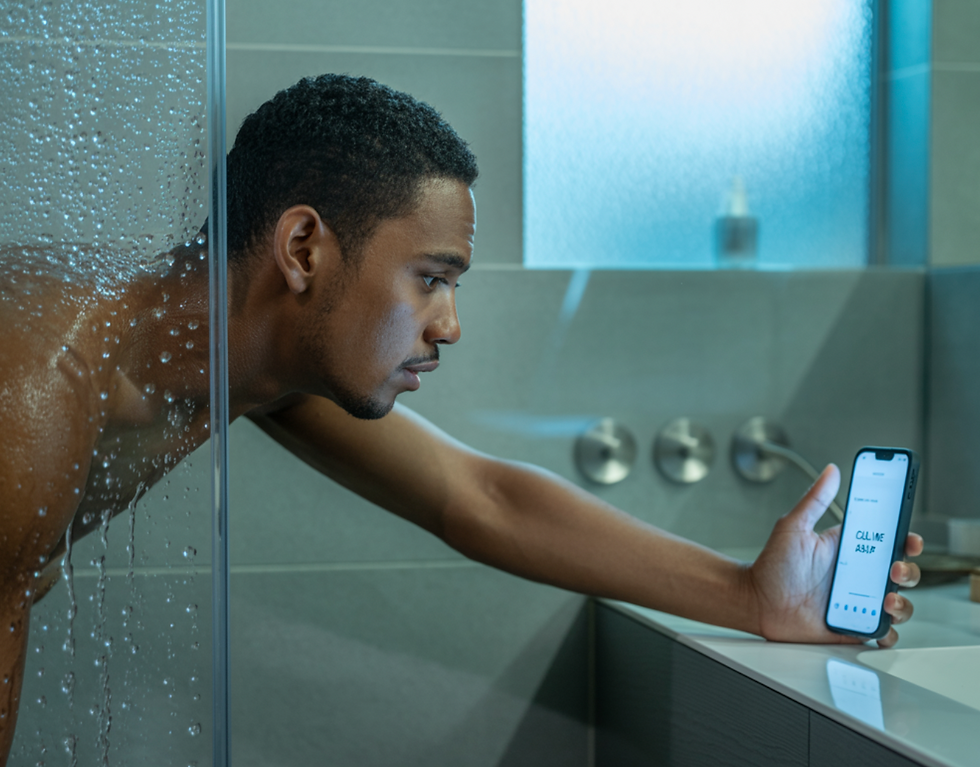Phone is a Tool of Control for Abusers: Know the Red Flags
- vincentopoix
- Jun 17, 2025
- 4 min read
In today's connected world, our phones are constant companions. They keep us in touch, informed, and entertained. However, in the hands of an abuser, this powerful tool of connection can quickly become a weapon of control. What might start as seemingly caring behavior can escalate into pervasive monitoring and a profound denial of personal freedom. Recognizing these red flags is crucial for anyone in a relationship where their phone use feels less like communication and more like a leash.

Tied to the phone, denied freedom
Abusers often leverage phone calls, FaceTime, and texts to establish an unhealthy sense of constant connection, effectively tying their partner to the device and denying them personal boundaries. What begins as frequent "check-ins" can quickly morph into demanding immediate responses, regardless of the partner's activity or comfort level. This pressure to be constantly available takes away from real-life moments and erodes personal space. For example, a partner might get furious if you don't respond within minutes, sending aggressive texts that accuse you of not caring. They might insist on FaceTime calls to visually verify your surroundings, questioning why you're in a certain place or who else might be there.
In LGBTQ+ relationships, this control can take specific forms. A gay man's partner might demand constant updates on his whereabouts when out with friends, accusing him of "looking for someone else" if he steps away for a moment. A lesbian woman might face incessant texts or calls while at work, with her partner implying she's neglecting them or secretly meeting someone. The abuser may even try to justify this extreme monitoring, claiming it's for "safety" or "because they love you so much," when it is, in reality, about insecurity and dominance. One shared experience describes a partner demanding live video proof of surroundings to ensure no one else was present, even escalating to threatening infidelity as "punishment" for perceived slights, like a victim briefly falling asleep after texting. This constant digital tether denies independent life and individual freedom, turning the phone into an instrument of surveillance and accusation.
Act immediately on these red flags
If your partner's phone-related behavior makes you feel bad, frustrated, guilty, upset, worried, or nervous, these are immediate red flags. It is normal to feel occasional anger or frustration in a relationship, but constant irritation or rage from your partner, especially over phone use, signals an unhealthy dynamic. Your partner's anger in these situations places them in the driver's seat, making you feel powerless. For instance, if your partner gets furious about you turning off read receipts, or demands explanations for short delays in texting, they are not respecting your boundaries. They are likely trying to ensure you are constantly accessible and accountable to them, rather than trusting you to have a life outside their immediate oversight.
Healthy relationships involve mutual respect and trust. They embrace forgiveness and kindness. If your relationship feels characterized by constant demands and irrational expectations related to your phone use, it is not healthy. This type of controlling behavior often marks the beginning of an abusive pattern. Do not try to change or save your partner. Instead, step back, examine how their actions make you feel, and prioritize your own peace. You are not a "bad" partner for needing personal space or having a life that doesn't revolve around immediate phone availability. Your feelings are valid, and it is acceptable to address these issues to ensure a healthy and balanced dynamic.

Overcoming the trauma of digital control
Enduring months or years of controlling behavior through phone use can leave deep, lasting trauma. Victims often find themselves instinctively mimicking these toxic patterns, even in future, healthy relationships. For example, someone who was constantly accused and punished for not immediately responding might start preemptively sending selfies or "proof" of their whereabouts to a new, trusting partner. This reaction, born from a need to preempt accusations and avoid punishment, shows how deeply controlling abuse can scar.
Recognizing these ingrained reactions is a vital part of healing. A healthy partner will see these behaviors as a sign of past trauma and will help you shed them, rather than exploiting them. Overcoming this requires immense courage and patience. It means consciously rebuilding your sense of autonomy, setting firm boundaries, and understanding that your worth and trustworthiness are not tied to your instant availability or constant digital transparency. Professional support from a therapist can be invaluable in processing this trauma, developing healthier coping mechanisms, and learning to trust your own instincts again.
Do not fall for abuse, especially when it disguises itself as love or care. You deserve a relationship where your phone is a tool for connection, not a device for control. You deserve peace of mind, respect for your boundaries, and the freedom to live your life without constant surveillance or the fear of punishment. Prioritize your well-being, trust your gut feelings when something feels off, and wish for yourself a future built on genuine trust and mutual respect.


